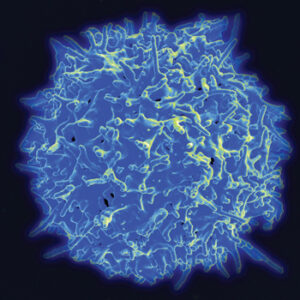Immune Memory Response May Increase Disease Risk
In research with implications for treating a range of inflammatory conditions, an international team led by University of Pennsylvania (UPenn) School of Dental Medicine investigators has demonstrated how innate immune memory response can increase susceptibility to disorders ranging from periodontitis to cardiovascular disease.

In research with implications for treating a range of inflammatory conditions, an international team led by University of Pennsylvania (UPenn) School of Dental Medicine investigators has demonstrated how innate immune memory response can increase susceptibility to disorders ranging from periodontitis to cardiovascular disease.
Published in Cell, the study, “Maladaptive Innate Immune Training of Myelopoiesis Links Inflammatory Comorbidities,” lays out the mechanism by which one inflammatory condition can increase risk for additional inflammatory disorders through alterations in immune cells. Corresponding author George Hajishengallis, DDS, PhD, a professor in the Department of Basic and Translational Sciences at UPenn, says the researchers have identified a “unifying principle underlying the association between a variety of comorbidities.”
In previous work, Hajishengallis and colleagues demonstrated that, like the adaptive immune system’s T cells and B cells, the innate immune system’s myeloid cells “remember” past encounters. The work also pinpointed how this memory was encoded, tracing it to bone marrow. The team showed that after inducing periodontitis in mice, the animals’ myeloid cells and their progenitor cells expanded in the bone marrow. In addition, the progenitor cells appeared to have memorized the inflammation they were exposed to—perpetuating a misguided immune response from the periodontitis-trained stem cells.
Additional experiments revealed the signaling pathway governed by a receptor for the interleukin-1 (IL-1) molecule played a vital role in contributing to this inflammatory memory. Mice that lacked IL-1 receptor signaling could not generate the immune memory that made the other mice more susceptible to comorbidities, the researchers found. This suggests that blocking IL-1 receptor signaling could be an effective approach to mitigate the negative effects of trained immune response. Further investigations are under way.
From Dimensions of Dental Hygiene. July 2022; 20(7)10.

